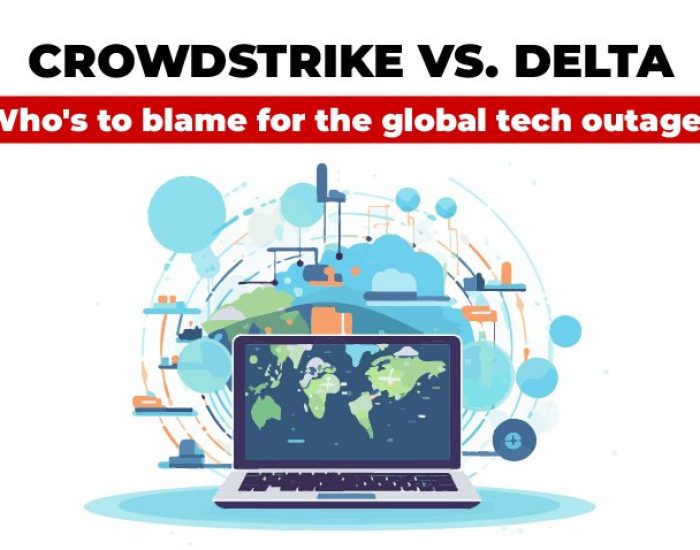Managing Data Security and Privacy in Cloud Computing
Cloud computing has revolutionized the way businesses operate in the modern digital age. It offers a cost-effective solution for managing data and applications, providing flexibility and scalability to meet the market’s ever-changing demands. However, significant data security and privacy concerns come with the numerous benefits of cloud computing.
Following details the security and privacy that your organization must consider.
Data Security
A primary concern that organizations face when using cloud computing is data security. Here are some of the most common issues we come in contact with:
- Data Breaches: Cloud computing involves storing data on remote servers that can be accessed online. This makes it vulnerable to unauthorized access, hacking, and data breaches. Cybercriminals can exploit vulnerabilities in the cloud environment to gain access to sensitive data, compromising the organization’s security.
- Data Loss or Corruption: Data stored in the cloud can be lost or corrupted due to various factors such as hardware failure, natural disasters, or human errors. This can cause significant data loss, resulting in legal and financial implications for the organization.
- Malware and Cyber-attacks: Malware and cyber-attacks constantly threaten cloud computing environments. Cybercriminals can use various methods such as phishing, ransomware, or distributed denial-of-service (DDoS) attacks to compromise the cloud environment and steal or damage data.
Privacy Concerns
Privacy and data security concerns are critical in cloud computing. Some of the most common ones that you must address are:
- Unauthorized Access to Sensitive Data: In the cloud environment, sensitive data such as personal information or trade secrets can be accessed by unauthorized parties. This can result in reputational damage, legal implications, and financial losses.
- Inadequate Data Protection Policies: Cloud service providers may have different data protection policies and practices that may not align with an organization’s privacy requirements. This can lead to inadequate data protection, data misuse, or unauthorized data sharing.
- Regulatory Compliance Issues: Organizations storing data in the cloud may be subject to regulatory compliance requirements such as GDPR, HIPAA, or CCPA. Failure to comply with these regulations can result in legal and financial implications.
 Best Practices for Managing Data Security and Privacy Concerns in Cloud Computing
Best Practices for Managing Data Security and Privacy Concerns in Cloud Computing
To effectively manage data security and privacy concerns in cloud computing, organizations should implement the following best practices:
- Choose a Reliable Cloud Service Provider: Selecting a reputable and reliable cloud service provider is critical for ensuring the security and privacy of data stored in the cloud. Organizations should conduct due diligence to assess a cloud service provider’s security practices, certifications, and compliance with industry standards.
- Implement Strong Data Encryption and Access Control Mechanisms: Encryption of sensitive data stored in the cloud environment is essential to prevent unauthorized access. Access control mechanisms such as multi-factor authentication and role-based access control should be implemented to control access to sensitive data.
- Regularly Audit and Monitor the Cloud Environment: Regular audits and monitoring of the cloud environment can help identify potential security breaches and ensure compliance with regulatory requirements. Monitoring should include monitoring network traffic, user activities, and system logs.
- Develop and Test a Disaster Recovery Plan: Organizations should develop and test a disaster recovery plan to ensure that critical data can be restored during data loss or corruption. The disaster recovery plan should include backup and recovery procedures, data replication, and testing.
- Train Employees on Cloud Security Best Practices: Educating employees on cloud security best practices is critical to prevent data breaches caused by human error. Employees should be trained to identify and report potential security threats, use strong passwords, and avoid phishing attacks.
Top 5 Best Cloud Storage Services
In the realm of cloud computing services, data security and privacy are paramount. Here are the top 5 cloud managed services renowned for their robust security measures:
1. Google Cloud Storage: Offers advanced encryption and access controls.
2. Amazon S3 (Simple Storage Service): Features strong encryption options and compliance certifications.
3. Microsoft Azure Storage: Provides encryption at rest and in transit, along with regulatory compliance.
4. Dropbox Business: Known for its user-friendly interface and data encryption.
5. IBM Cloud Object Storage: Offers built-in encryption and access controls, emphasizing data privacy.
Choose from these trusted providers to ensure your data remains secure and private in the cloud.
Compliance and Legal Considerations for Cloud Computing
Managing data security and privacy concerns in cloud computing is critical for organizations to safeguard their sensitive data from security threats and regulatory violations. You can ensure that your data remains protected in the cloud environment by selecting the right provider and engaging some of the tools mentioned above.
Protected Harbor is a top choice in the US when selecting a cloud provider, as ranked by Goodfirms. We offer reliable and secure cloud migration services with robust encryption and access control mechanisms, comprehensive disaster recovery plans, and compliance with regulatory requirements. We have a proven track record of providing exceptional customer support and understanding our client’s needs.
If your organization is considering cloud migration services, choosing a provider you can trust with your sensitive data is important. Protected Harbor offers the security and peace of mind to confidently migrate your data to the cloud environment.
Take the first step in securing your organization’s data by contacting Protected Harbor today to learn more about their cloud migration services.






